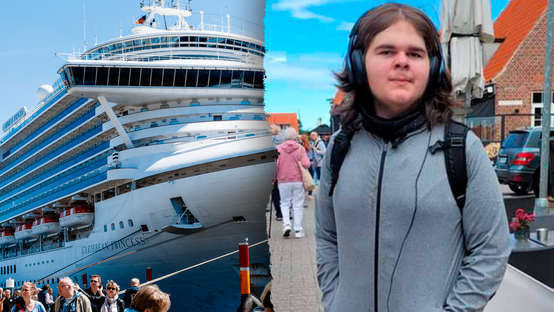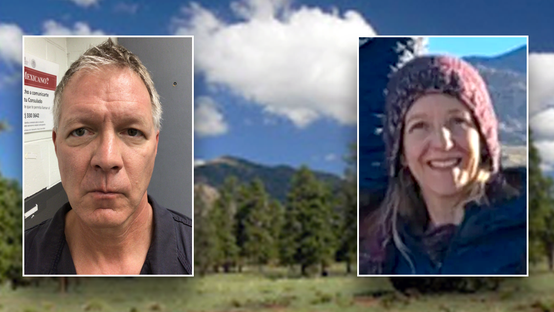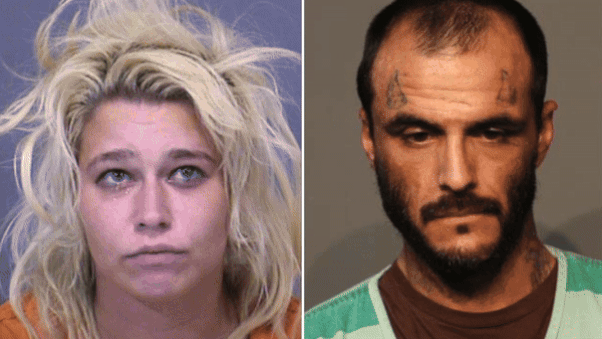Columbia University in Turmoil: Agitators, Police Response, and a Presidential Crisis
- May 3, 2024 11:01am
- 360
Columbia University's embattled president, Nemat Minouche Shafik, faces mounting pressure as outside agitators ignite campus protests, prompting a controversial police response and a potential mutiny from the faculty.

Columbia University has erupted in unrest, with anti-Israel demonstrations escalating into campus takeovers and confrontations with law enforcement. At the heart of the turmoil lies the university's president, Nemat Minouche Shafik, who has faced criticism from both sides of the conflict.
Following months of protests, a group of agitators stormed Hamilton Hall, barricading doors and windows and disrupting academic activity. President Shafik, who initially tolerated the protests, reluctantly called for police assistance as the situation spiraled out of control.

The NYPD's entry into Hamilton Hall has been met with mixed reactions. While university leaders and law enforcement supporters defended the operation as necessary to restore order, a faculty group has condemned it as excessive force. The Columbia chapter of the American Association of University Professors (AAUP) has even called for a vote of no confidence in Shafik and other administrators.
The campus strife has also drawn the attention of House Speaker Mike Johnson, who has demanded Shafik's resignation. Critics accuse her of being too soft on anti-Israel activists and failing to maintain a safe and inclusive campus environment.

President Shafik has expressed sadness over the heightened tensions, acknowledging that the protests have created a "disruptive environment for everyone and raised safety risks to an intolerable level." She has emphasized the need to balance academic freedom with maintaining order.
However, the university's handling of the protests has raised questions about the role of campus leadership in addressing extremism and the erosion of academic values. Law professor and Equal Protection Project founder William A. Jacobson has argued that appeasement of radical elements has emboldened them and led to a proliferation of antisemitism on campus.

The events at Columbia have sparked a national debate about the balance between free speech and public safety on university campuses. Some argue that allowing protesters to occupy university buildings and disrupt academic activities infringes on the rights of others and undermines the integrity of education. Others contend that forceful police interventions violate students' rights to dissent and create a chilling effect on campus.
As the turmoil continues, Columbia University faces a crossroads. The university must navigate the delicate balance between protecting academic freedom, ensuring safety, and addressing the underlying causes of campus radicalization. President Shafik's leadership will be crucial in determining the university's future and its ability to reconcile its values with the challenges it faces.





Related articles
-
 Teenager with Schizophrenia Found Safe After Appearing in Twitch Stream
A 17-year-old boy from Flint, Michigan, who had been missing since May, was found safe in Miami after he appeared in a popular Twitch streamer's live...
Teenager with Schizophrenia Found Safe After Appearing in Twitch Stream
A 17-year-old boy from Flint, Michigan, who had been missing since May, was found safe in Miami after he appeared in a popular Twitch streamer's live...
- 06 Jul 2024
-
 The Chilling Tale of a Romance Novelist Who Murdered Her Husband
In a twist of fate, a romance writer's essay on "How to Murder Your Husband" became a haunting reality when she allegedly killed her spouse. Join us...
The Chilling Tale of a Romance Novelist Who Murdered Her Husband
In a twist of fate, a romance writer's essay on "How to Murder Your Husband" became a haunting reality when she allegedly killed her spouse. Join us...
- 06 Jul 2024
-
 Tragedy at Coney Island: Two Teenagers Drown in Waters
Two teenage girls, ages 17 and 18, tragically lost their lives after drowning in the waters off Coney Island in New York City on Friday night, July...
Tragedy at Coney Island: Two Teenagers Drown in Waters
Two teenage girls, ages 17 and 18, tragically lost their lives after drowning in the waters off Coney Island in New York City on Friday night, July...
- 06 Jul 2024
-
 American Teen Vanishes from Cruise Ship in Germany, Sparking Search
Aydin Brown, 14, disappeared after disembarking the Caribbean Princess in Warnemünde, leaving authorities and family distraught. Surveillance footage...
American Teen Vanishes from Cruise Ship in Germany, Sparking Search
Aydin Brown, 14, disappeared after disembarking the Caribbean Princess in Warnemünde, leaving authorities and family distraught. Surveillance footage...
- 06 Jul 2024
-
 Missing Arizona Woman's Body Found, Husband Arrested
The remains of Kelly Paduchowski were discovered on Friday, nearly a week after she was reported missing. Her husband, Daniel Paduchowski, has been...
Missing Arizona Woman's Body Found, Husband Arrested
The remains of Kelly Paduchowski were discovered on Friday, nearly a week after she was reported missing. Her husband, Daniel Paduchowski, has been...
- 06 Jul 2024
-
 Nationwide Drug and Felony Arrests Fill Jails Across the Country
In recent weeks, over a dozen individuals have been arrested in various states across the United States for alleged drug offenses and felonies. These...
Nationwide Drug and Felony Arrests Fill Jails Across the Country
In recent weeks, over a dozen individuals have been arrested in various states across the United States for alleged drug offenses and felonies. These...
- 06 Jul 2024

Leave a comment
Your comment is awaiting moderation. We save your draft here
0 Comments
Chưa có bình luận nào